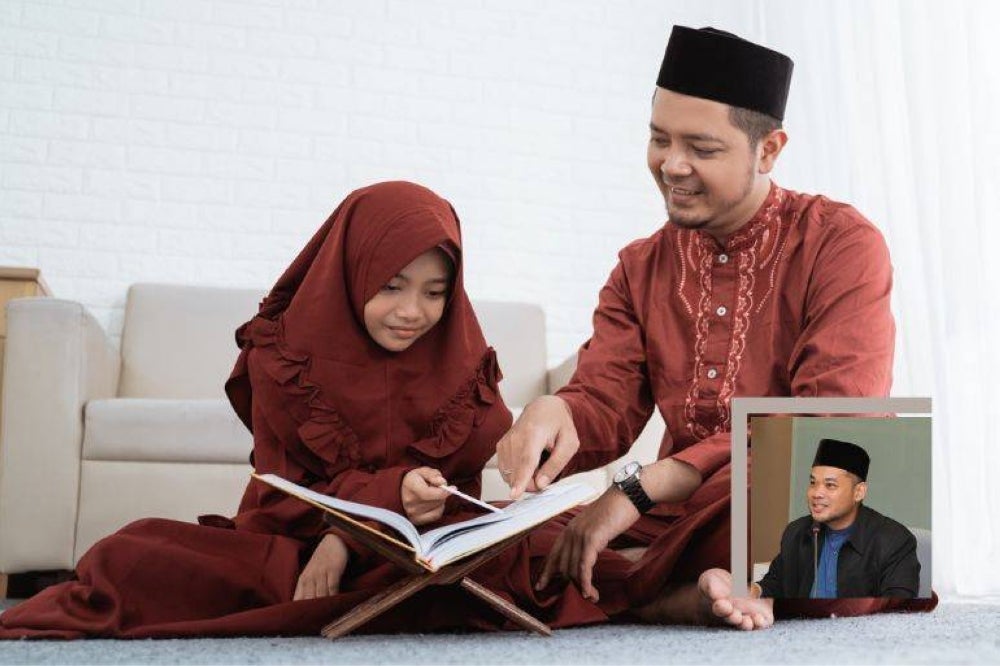Do not neglect orphans' rights

In Islam, the call to protect orphans and their rights is not something new.
The reminder to recognise faraid gifts (distribution of inheritance) to orphans must be taken very seriously and it was mentioned in two important verses in surah an-Nisa' just before faraid distribution to the rightful heirs were detailed.
The two verses were significant because it emphasised the importance of giving shares or rights of inheritance to orphans and that punishment will be imposed in case of misappropriation of the property.
The verse as translated by Sahih International: "And when [other] relatives and orphans and the needy are present at the [time of] division, then provide for them [something] out of it [i.e., the estate] and speak to them words of appropriate kindness." (Surah an-Nisa', verse 8) This verse reminded us to celebrate the orphans, whose father or parents had died, and poor relatives during the distribution of inheritance.
The group were specifically mentioned because children experience difficulty to interfere in adults' affairs, and they themselves could not fathom the death of their family members.
In verse 10 of the same surah, Allah said, in which Sahih International translated: "Indeed, those who devour the property of orphans unjustly are only consuming into their bellies fire. And they will be burned in a Blaze [i.e., Hellfire]." Based on the threat of severe punishment in the afterlife, this verse reminded everyone to not oppress orphans by exploiting their inheritance.
Ironically, if the trust entrusted to the party caring for the orphan was violated, then a breach of trust occured.
Male relatives have no rights The simplest example is when a man dies and leaves a young son and a biological brother.
The inheritance left behind by the deceased man will be fully inherited by his son as heir of 'asabah (inheritor) and the male relative has no rights even if he is the uncle.
As a trustworthy uncle, he should be responsible to take care of his nephew, who is now an orphan due to his father's death (his brother).
However how many people were trusthworty enough to protect and care for the orphans? Age difference is not a determining factor to decide if an individual can receive the inheritance. Faraid conditions only comprised of three things which are the death of the benefactor, the next of kin is alive and knowing the nature of their relationship as well as no obstacles to the inheritance.
Therefore, orphans are still considered as next of kin despite their young age.
Orphans are not considered as obstacles to receive inheritance alongside other heirs entitled to inherit the property. The orphan's situation, however, were seen as constraint to manage the property by themselves. They will need another party either among the next of kin or outsider to help manage the inheritance they received.
Family trust fund The need for a trustworthy administrator is very important to ensure the inheritance is well managed and the orphans' wellfare is not neglected. The order for all administrators to tend to this duty was mentioned by Allah in verse nine of Surah an-Nisa'.
The verse, revealed before the faraid distribution to the rightful heirs were detailed, was significant as it served as a guide for inheritance administrators. They were reminded to always have piety and fear of Allah as abuse and neglect were likely to happen if the inheritance was not managed properly.
They were also reminded to communicate well and honestly about the inheritance under their care. This is to ensure the future generations can survive in the world.
The suggestion to create a family foundation or a family trust fund is important to take care of the inheritance that was put aside before distributing it to the orphans when they can manage the property themselves.
Keep in mind that orphans need expenses to survive before then. Orphans who are protected by trustworthy individuals are truly lucky.
***Article written by Universiti Sains Islam Malaysia Faculty of Shariah and Law senior lecturer Zahari Mahad Musa
Download Sinar Daily application.Click Here!














